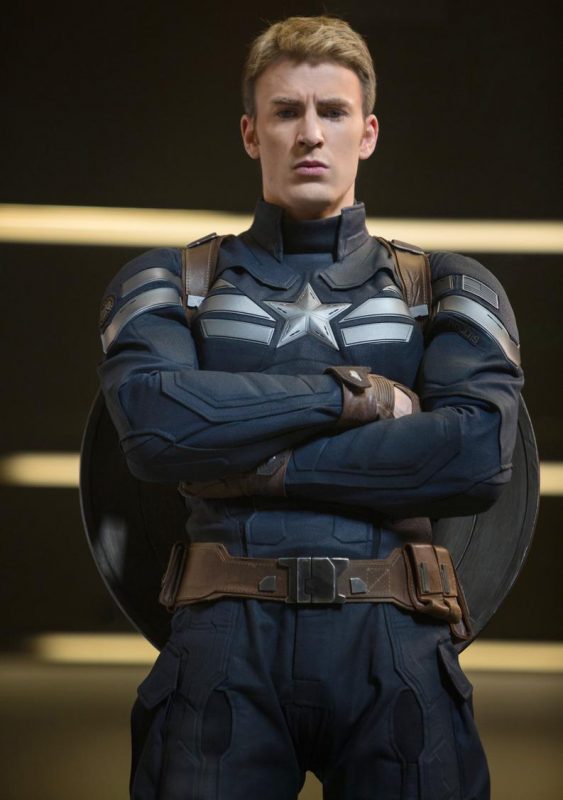
Super heroes have become awfully
dark and brooding these days, so it’s refreshing to have a Captain America
(Chris Evans) who is squeaky clean and patriotic and earnest. It’s also clever
to put him in a complex world where no one can be trusted and politics are
acted out in murky shades of gray.
In case you’d forgotten where we
last left off, Steve Rogers, aka Captain America, was a 98-pound weakling who
was turned into a spandex-wearing, shield-wielding super-soldier. He was
fossilized after WWII and has now
been awakened in the year 2014.
Amusingly, Steve walks around with a notepad of pop culture events
he needs to catch up on: Nirvana is on the list and so is Rocky. (“Rocky 2?” is
written parenthetically. Skip it, Steve.). He’ll fearlessly carry out all
orders from S.H.I.E.L.D (Strategic Homeland
Intervention, Enforcement, and Logistics Division) but don’t ask him to do something
against his conscience. He’s incorruptible.
That’s where Natasha Romanoff, aka Black Widow (Scarlett
Johannsen) comes in. She’s a former KGB agent, now trying to amend for past
sins by being a true American loyalist. (We first met her and her guilty
conscience in The Avengers). But
since she has a better grasp of that shadowy world, she’s needed to do
some of the dirty work—say, steal the classified plans for Helicarriers, spy
satellite weapons that can kill targeted subjects by the millions.
When leading S.H.I.E.L.D agent Nick
Fury (Samuel L. Jackson) explains the secret mission to Rogers, he’s dubious.
But Fury is merely following orders from his superior, director Alexander
Pierce (Robert Redford).
Then, in one of the film’s many
witty and exciting sequences, Fury is attacked by a fleet of armed men. He’s
driving a S.H.I.E.L.D-issued car—bullet-proof and equipped with an ejector
button—but its high-tech systems keep breaking down, one-by-one.
“What does work?” he finally
bellows.
“The air conditioning unit is
operational,” the car’s robot-voice responds.
Now bloodied and near death, Fury
makes his way to Rogers’ house where he hands him the plans to the
Helicarriers. “Trust no one,” he says, before blacking out.
Like all the Avenger movies, including the two Thor films and the Iron Man
series, Captain America: The Winter
Soldier is a near seamless blend of action, mythology, wit, and genuine
character development. (The Winter
Soldier of the title is Steve’s dark counterpart, a super soldier dressed in
black who was programmed by the bad guys. But what is his connection to
Rogers?).
Rogers and Natasha aren’t a
romantic pair, per se, but they have charming banter and good chemistry. (Plus,
more collective beauty than any two people should legally be allowed to possess.) The always welcome Anthony
Mackie is around as Sam, Rogers’ only friend—a former soldier who says, of his
sidekick status: “I go everywhere he goes; only slower.” Of course, like
everyone else in the film, there’s more to Sam than meets the eye. (Hint: His
imdb.com character name is Sam Wilson/Falcon.)
Is it going too far to say that
the decency and moral clarity of Captain America makes him the perfect hero for
our own ethically murky times? (He
would never approve of drone strikes,
for example.) Perhaps. So I’ll just leave you with this: Cool shield, bro.
